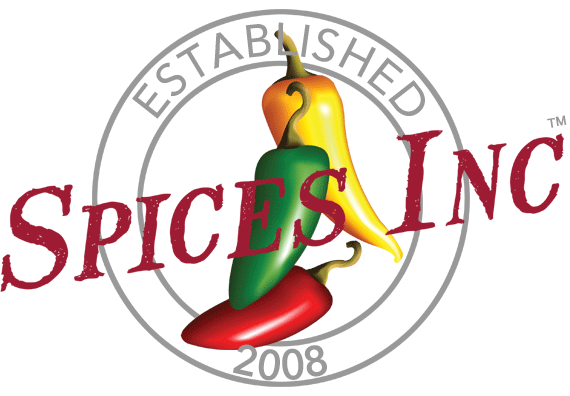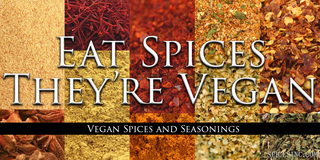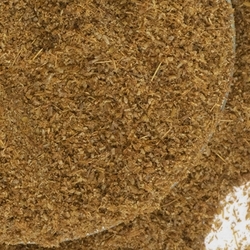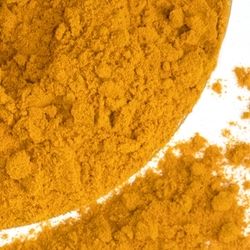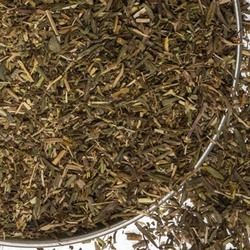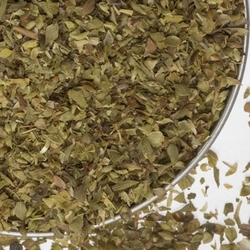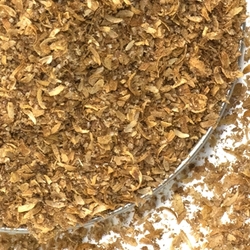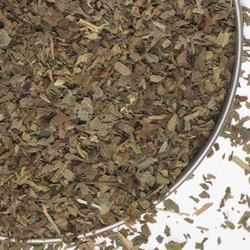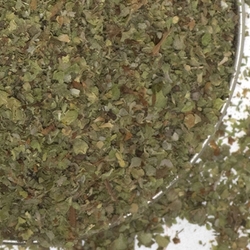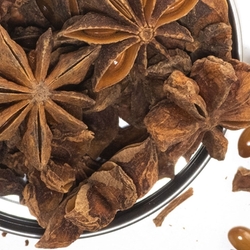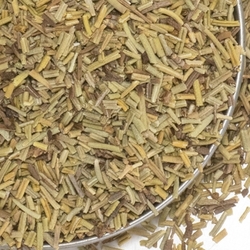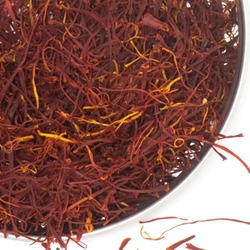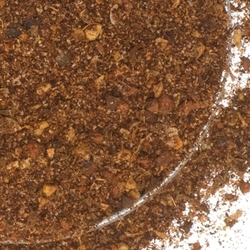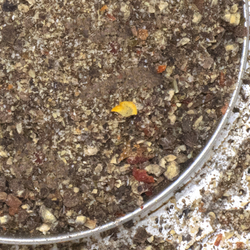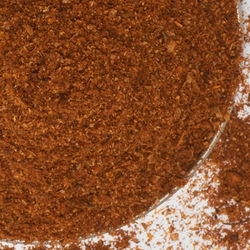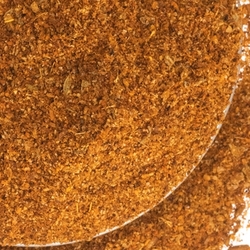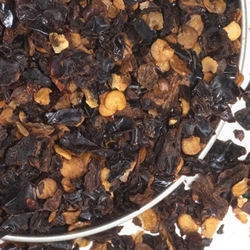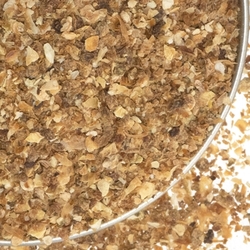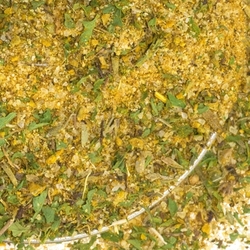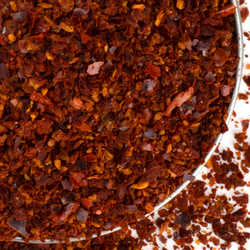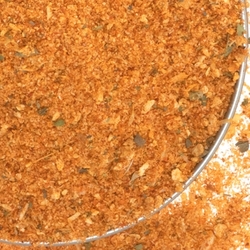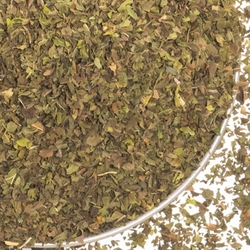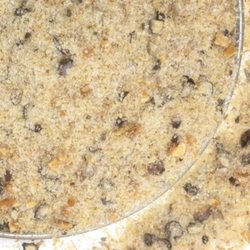Vegan Spices and Seasonings
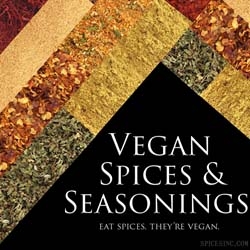
Vegetarianism has gained a lot of popularity in the last few years. Fast options for hearty vegetarian and vegan meals are cropping up all over the place and are steering away from the usual dismissive "we have salad or pasta." At the beginning of many people's vegetarian experience, they may think options for vegetarian food, or at least what they understand to be vegetarian food, are bland and limited. Spices can make something as everyday as a spaghetti dinner taste extraordinary though, so these blasé thought processes can be changed for the better. Frozen fake meats that microwave into mushy piles that are somehow all the same shade of a vague orange can be tossed aside for the luscious fresh fruits and vegetables of the produce section. With the right spices by your side, a carrot can be made into a delicious hot dog replacement or even a sloppy joe base, while mushroom caps can be turned into burgers.
An Increase in Vegan Cooking
Vegetarian and vegan cooking has become infinitely more popular in the last five years with so much focus shifting to sustainable, good for the earth food. Spices can help make a huge difference for vegetarians and vegans by transforming a boring meal into one that is ripe with flavor. We have worked with several vegan restaurants and chefs, experts in vegan seasoning, and have learned what spices bring out the best flavor in rice, beans, vegetables, quinoa, buckwheat and millet. Even if you aren't used to spicing up your food, simple additions can give new life to things you have probably eaten dozens of times. Take a bay leaf for example. Adding just a single bay leaf to your pot of plain rice will lend it a flavor that you can't exactly put your finger on, though you may find that rice made without a bay leaf simply does not taste as interesting.
People tend to equate meat with flavor, but what they are neglecting to understand is that it is really the fat of the meat that tastes so good. You can eat a piece of steak plain if you want and it'll taste delicious, but a crown of broccoli prepared alone may underwhelm you. Spices add depth to food that can replicate the depth of flavor experiences a person would usually associate with meat. A good vegetarian kitchen is well stocked with spices and seasonings to help transform plain foods into out of this world delicious foods.
Vegan Spices by Cuisine
People have been using spices all over the globe for thousands of years. Each unique cuisine has a list of complementary spices based on hundreds of years of food evolution. Deciding on a cuisine that you like and tend to gravitate towards is a good way to begin exploring spices for your vegetarian or vegan diet.
Use some oregano, basil, marjoram or mint if you are looking for spices that will complement a Mediterranean diet. This is a relatively popular diet in the mainstream, so it is easy to find a lot of excellent recipes that utilize a variety of spices.
If your diet leans toward Mexican cuisine inspired foods, spices that work well with many foods of that cuisine include cumin, coriander and lime. Mexican cuisine also inspires a lot of seasoning blends, including Manzanillo Mexican Seasoning, Adobo Seasoning, and our Mojo Seasoning. Seasoning blends are great for adding a lot of flavor with a little product.
If you are the type of vegetarian that positively lives off stir fry, our Asian cuisine inspired spice blends might be the ones for you. Chinese Five Spice or some Spicy Thai Seasoning are perfect blends for changing up your usual routine of dumping that stir fry vegetable mix into a pan of oil and little else. Give these vegetables a little pinch of a spice blend and you'll be excited by the results, we promise.
Indian cuisine is one of the most intensely flavorful of all and it is certainly one of the most vegetarian friendly. Curry powders are abundant and we have quite a few to choose from, so why not experiment? Turmeric is another popular spice in this cuisine, as it gives a lot of color a dish.
Personalize Your Vegan flavors
Now, if you are stepping in on your own two feet, looking to build your own recipes and make food without influence from one particular cuisine, we have some ideas for you there as well. If you love root vegetables, our Pennsylvania Pepper and Moroccan Vegetable Rub will send your carrots, onions, parsnips, sweet potatoes, squash and turnips right over the top. These spice blends are lovely if you have no experience with building up your own layers of flavor and are looking to learn, or if you simply want something quick to make your meal as delicious as possible in a very short time.
For soups you'll want to stock up on basil, bay leaves, rosemary and thyme. These herbs are great for giving dimension to base flavors. Bay leaves, as we mentioned before, make things taste better without making their flavor known in an overwhelming way. For tomato based sauces use oregano, basil, garlic and onion. These flavors are great to add in a pinch and will transform the average dinner with red sauce into a dream. We are big fans of using either our Vegetable Soup Mix, fennel pollen, a prong or two of star anise or even some saffron for rice. Saffron is lovely for coloring aside from flavor and will turn your rice a lovely yellow color.
Now, using garlic is second nature for some people. We have been in homes where all they had was some garlic powder, salt, and pepper. After our mini heart attack (who only owns three spices?), we suggested these people branch out into even more interesting garlic, like roasted garlic flakes or roasted granulated garlic. Of course, then we suggested other spices that might rock their world but as the saying goes, "you can bring a horse to water, but you cannot force him to drink."
If you are reading this article thinking to yourself about how you are ready for even more flavor, we suggest experimenting with roasting whole spices before you cook with them. A little heat can go a long way as well. Some people take "spicy" very literally and approach us with questions about the different kinds of chiles we offer. While you can certainly go with the tried and true red pepper flakes for a variety of different uses, we especially fond of our smoked chipotle flakes for a real kick of heat. For less heat but a similarly intense flavor, Korean chili flakes are worth a try.
When shopping for seasoning blends at the grocery store, be cautious. Many are made with a huge amount of salt which is an inexpensive filler used by many manufacturers. We carry a growing selection of salt free seasonings. You won't find any anti-caking agents, unnecessary fillers, additives, colorings or flavorings in any of our hand blended seasonings either.
Word to the wise; if you are just beginning to experiment with spices we recommend using much less than you would think you have to and tasting as you go. Taste testing is crucial in any form of cooking, though in vegetarian cooking it is especially important. You want to make sure you are eating food that you enjoy eating, otherwise you may find yourself deep in a food rut of repeat recipes and boring leftovers you think a little too seriously about "accidentally" dropping on the floor for the dog to get at. Vegan seasoning does not have to be hard, so get cooking!
